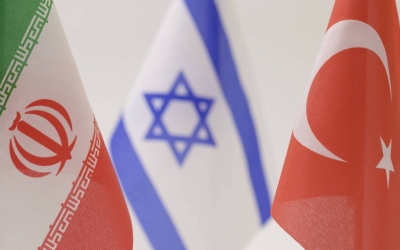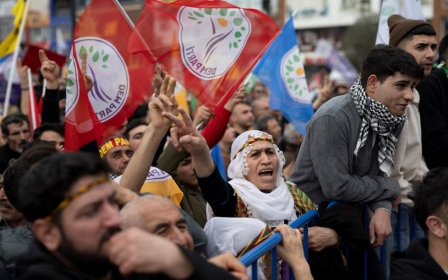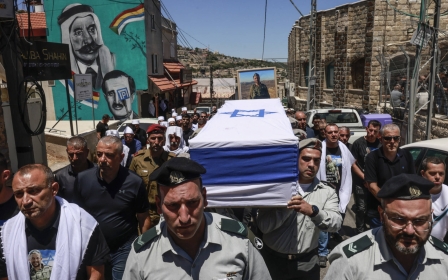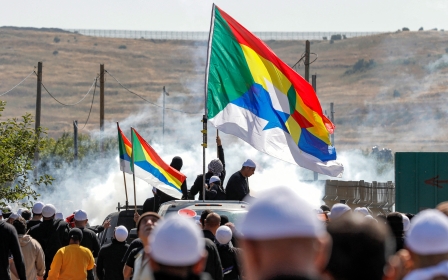Israel's foreign minister calls for ties with Kurds and other minorities in Middle East
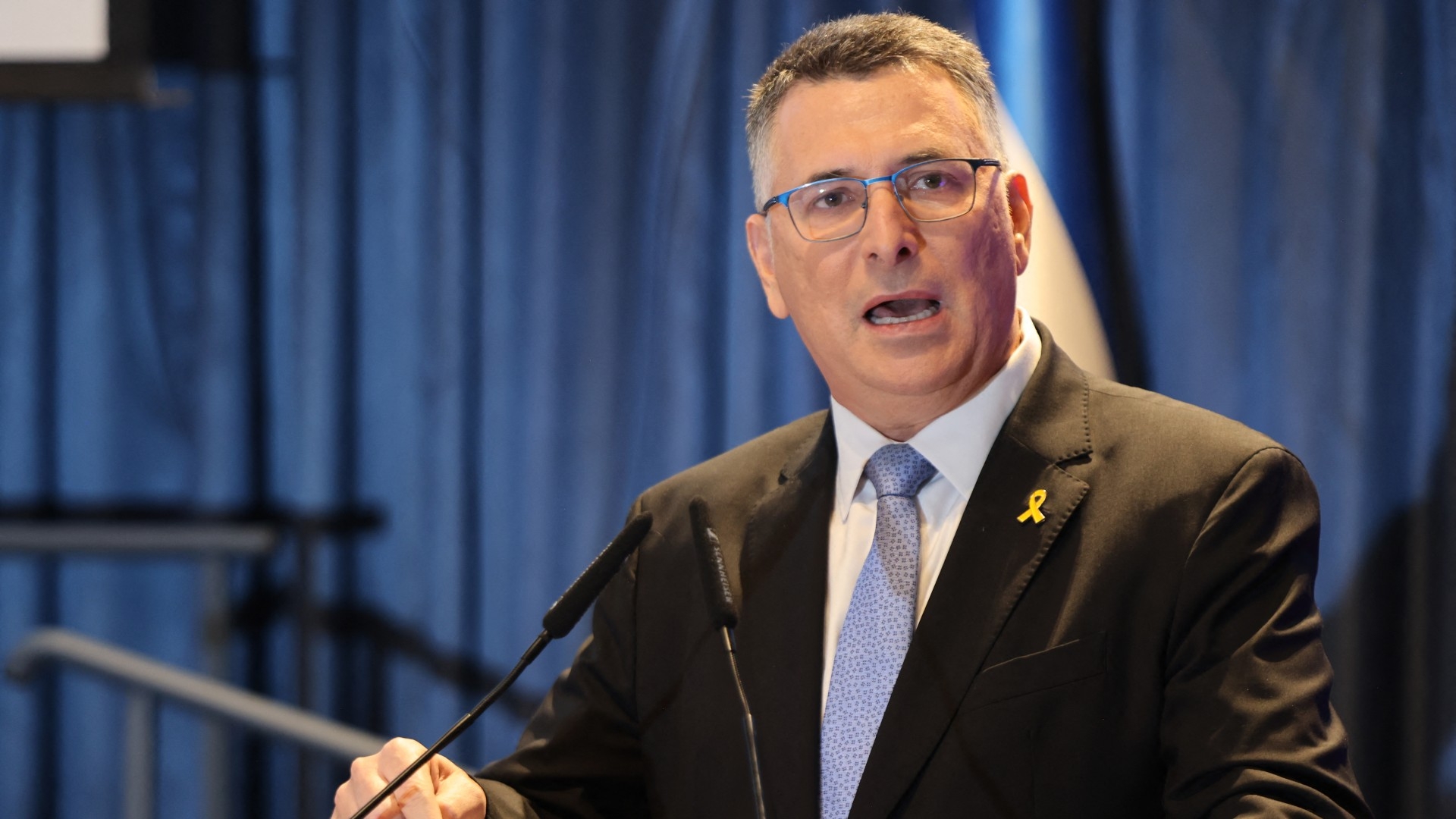
Israel's new foreign minister has said his country should reach out to Kurds and other regional minorities that are "natural" allies.
Gideon Saar, who was appointed foreign minister after his predecessor Israel Katz replaced the sacked Yoav Gallant last week, said Israel should look to Kurds, Druze and other minorities in neighbouring countries, in addition to Saudi Arabia, for support.
"The Kurdish people are a great nation, one of the great nations without political independence," he said at his ministerial exchange and inauguration ceremony on Sunday, describing Kurds as "our natural ally".
"It is a national minority in four different countries, in two of which it enjoys autonomy: de facto in Syria and de jure in the Iraqi constitution."
Saar said Kurds are "a victim of oppression and aggression from Iran and Turkey", and that Israel needed to strenghten ties to them. "This has both political and security aspects," he added.
New MEE newsletter: Jerusalem Dispatch
Sign up to get the latest insights and analysis on Israel-Palestine, alongside Turkey Unpacked and other MEE newsletters
Saar said that the Druze minorities in Lebanon and Syria should also be approached.
Israel has its own Druze minority, who suffer from some of the discrimination that other Palestinian citizens of Israel do, but often serve in the military.
In Lebanon, the Druze have a history of staunch pro-Palestinian support.
When images circulated in June of a funeral for an Israeli Druze soldier killed in Gaza that showed his coffin draped in an Israeli flag next to an image of two famous Druze figures, Walid Jumblatt, the Lebanese politician traditionally seen as the community's leader, said it was “an insult to the memory of these two great Arab heroes”.
Meanwhile, in Syria, the community has also opposed Israel, particularly after Israel's occupation of Syria's Druze-majority Golan Heights in 1967.
Diverse views
Kurds are one of the largest stateless minority groups in the world and have significant populations in Turkey, Iraq, Iran and Syria.
Across those countries they enjoy differing rights and social status, and are represented by political parties of widely differing ideologies, including with regards to their attitudes to Israel.
The main Kurdistan Democratic Party that dominates the semi-autonomous Kurdistan region in Iraq has enjoyed close albeit unofficial ties with Israel for many years - despite Iraq as a whole refusing to recognise the country, with citizens potentially risking the death penalty for establishing contacts.
Israel was the only country to openly support an independence referendum hosted in the Kurdistan Regional Government in 2017, which the Iraqi government refused to recognise.
And relations between Palestinians and Iraqi Kurds were complicated by the support Yasser Arafat gave Saddam Hussein.
By comparison, the People's Protection Units (YPG), which control much of northeastern Syria, are an offshoot of the Kurdistan Workers' Party (PKK), a left-wing organisation that has long had close links to ideologically sympathetic Palestinian groups like the Popular Front for the Liberation of Palestine and Democratic Front for the Liberation of Palestine.
The PKK, which has been waging an insurgency against Turkey for decades, was trained by Palestinian groups in Lebanon, where 11 of its fighters were killed battling Israel in 1982.
Although at times Turkey has accused Israel of supporting the PKK, the leadership of the organisation has always disuputed this, and even accused the Turkish National Intelligence Organisation (MIT) of involvement in the assassination of Hamas leader Ismail Haniyeh in Tehran earlier this year.
"Israel is currently waging the same genocide against the Palestinian people as the Turkish state is waging against the Kurdish people," Bese Hozat, a senior PKK official, said in August.
The PKK and its supporters have also long accused Israeli intelligence of involvement in the imprisonment of their founder and leader Abdullah Ocalan after he was captured by MIT in Nairobi in 1999.
Other Kurdish groups in Syria and Iran have established channels with Israel, while some have remained opposed for ideological reasons.
Israel-Turkey tensions
Though Israel's relations with Turkey are longstanding, tensions have occasionally spiked and impacted their ties.
Recently, the relationship has been badly affected by Israel's war on Gaza, which Turkish President Recep Tayyip Erdogan denounces as a genocide.
In May, Turkey suspended a $8bn trade agreement with Israel, though traders have sought to continue business by exporting via Palestine.
Protests were planned outside a number of Turkish embassies on Monday by pro-Palestinian activists against continuing oil shipments to Israel through Turkish ports.
A Thousand Youths for Palestine, an activist group co-organising the demonstrations, said on social media it was calling on Erdogan to "close the genocide valves" fuelling the assault on Gaza.
More than 43,000 people have been killed by Israel since October 2023, according to the Palestinian health ministry.
Middle East Eye delivers independent and unrivalled coverage and analysis of the Middle East, North Africa and beyond. To learn more about republishing this content and the associated fees, please fill out this form. More about MEE can be found here.


